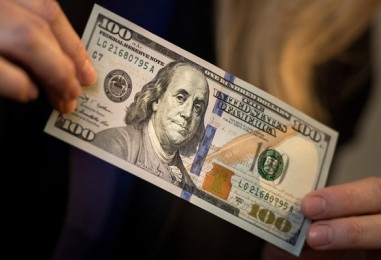US dollar price continues to rise against Sudanese pound
October 5, 2015 (KHARTOUM) – The price of the US dollar has witnessed significant increase in the black market in Khartoum on Monday, settling at 10,10 Sudanese pounds (SDG).

The Sudanese pound has 100% of its value since South Sudan’s secession, pushing inflation rates to record levels given that the East African nation imports most of its food.
The official dollar exchange rate stated by the Central Bank of Sudan (CBoS) is around 6.1 SDG.
On the sidelines of the consolidated treasury conference on Sunday, CBoS governor, Abdel-Rahman Hassan, declined to respond to questions posed by reporters regarding the significant deterioration in the value of the Sudanese pound against the US dollar.
On the other hand, traders speaking to Sudan Tribune in central Khartoum attributed the increase to dollar scarcity and growing demand in the Sudanese market, projecting a further rise in the dollar price during the coming days.
A government official who asked for anonymity blamed the steady increase of the dollar price against the Sudanese pound on the decline of the oil transit fees coming from South Sudan due to the global fall in oil prices.
Businessmen said that the market is directly affected by the exchange rate with rising price of commodities whether imported or domestic. They complained that high prices mean recession and snag in already low consumer demand.
Importers warned that the rise in dollar price could eventually stop importation, saying this would lead to goods scarcity and more increase in commodity prices.
Sudanese economists stress that the government is the largest buyer of the dollar from the black market including the central bank and other government institutions.
“The government has lost most of the resources which provide hard currency. Their dependence on gold does not cover even 30% of the [import] needs such as gasoline, wheat and drugs” one of them said.
They doubt that the government uses its Forex resources to increase the foreign reserves, pointing that optimal allocation of the dollar should have lowered its price in the black market.
The head of the chamber of food industries, Abdel-Rahman Abas, has described the situation in the market as “bad”, pointing to the weak purchasing power and prohibitively high prices due to the high price of dollar.
He told Sudan Tribune that the dollar price reached 10,25 urging the government to interfere to curb the continuous rise in the dollar price.
Abas attributed the increase in the dollar price to what he described as the loose government spending.
“If the state really seeks to address the situation, it must reduce the government spending by 25% besides giving all the power to the ministry of commerce which has a proven record of providing goods, controlling prices and rationalizing imports,” he added .
